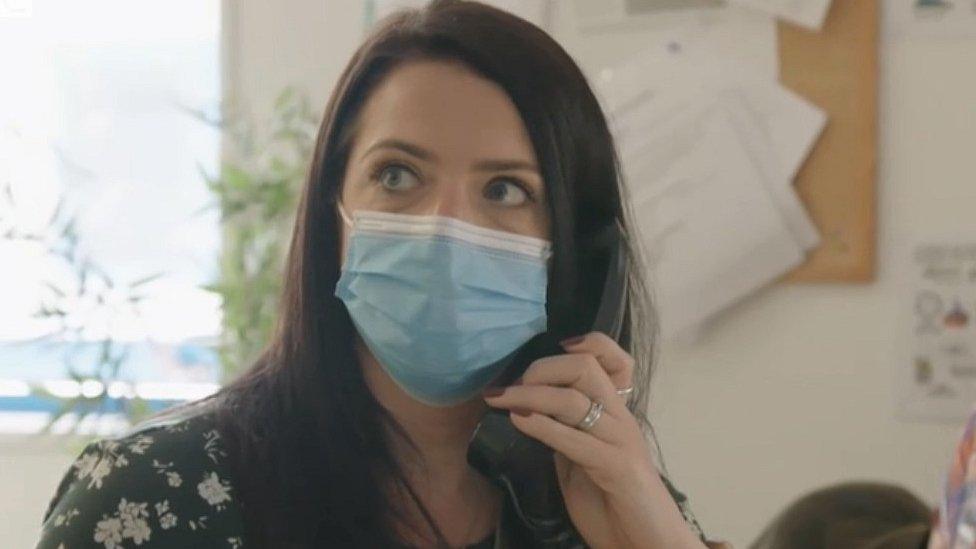Children's mental health: 'I've got my daughter back after suicide attempts'
- Published
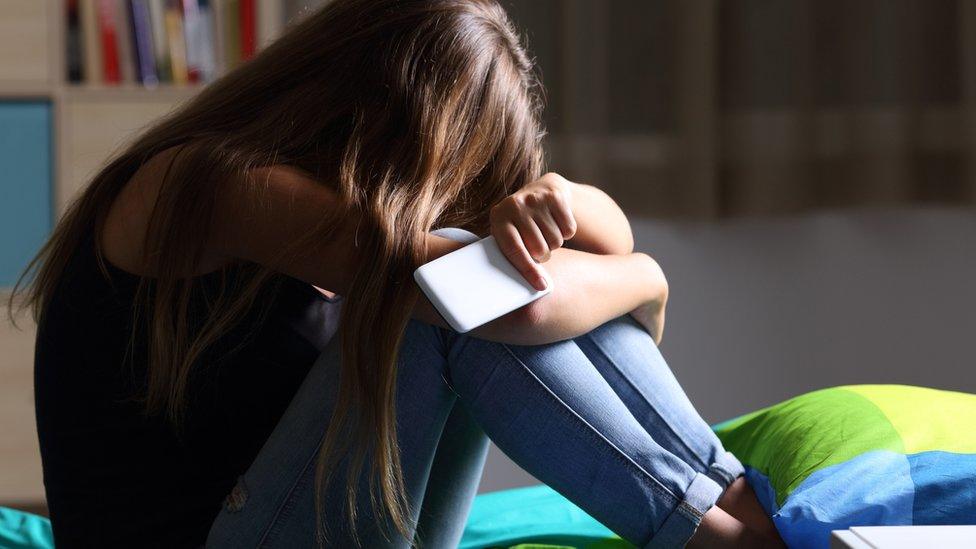
Lily's mum says her daughter has finally received the support she needs (photo posed by an actor)
Lily was just 12 years old when she tried to take her own life for the first time.
And the schoolgirl, who had struggled with an eating disorder and self-harm for two years, went on to make two further attempts in the days that followed.
"You just feel utterly devastated," said her mum Nicola.
"For a mother to have to accept that you can't keep your child safe, and the fact that you can't keep your child safe from themselves, is just horrendous.
"There's no feeling like it. Your stomach just falls through the floor.
"You feel like you're losing them there and then."
The family spent two years living in fear that the worst could happen.
"You feel like your child is slipping away from you and you don't know where to turn," Nicola said.
"For months I would sleep on her bedroom floor to try to keep her from self-harming [and] eventually from trying to kill herself every night.
"You didn't dare close your eyes for what she might do."
Following her third suicide attempt in four days, Lily spent two weeks on a children's hospital ward before being offered a place on the Dewi Jones Unit at Alder Hey Children's Hospital in Liverpool.
The inpatient mental health facility is designed to help children aged five to 13.
"There are so few beds in the North West so it took two weeks," explained Nicola.
"We were very lucky to get that bed."

Help and support
If you're affected by any of the issues in this article you can find details of organisations who can help via the BBC Action Line.

The decision to admit Lily was both devastating and a real relief for Nicola, who also believes her daughter has undiagnosed autism.
"It was a real mix of emotions," she said. "Because even though you know it's what needs to happen, you don't want it to happen.
"For a start, you feel a failure even though you can't possibly because you can't do anything more, you've done everything you can."
New figures from Alder Hey Children's Hospital reveal a huge rise in eating disorders since the Covid pandemic, with referrals increasing by 250% since 2019.
Last year, there were 8,000 calls to its child and adolescent mental health services (CAMHS) crisis team.
Lily spent nearly 10 months at Alder Hey, supported by the Dewi Jones Unit staff.
"Without the team at Alder Hey, my daughter would not be here," said Nicola.
"I've got my daughter back and that's what I said to them when I eventually brought her home.
"It's the biggest gift you can give a parent."
However, Nicola fears for other children and their families, warning: "If there isn't a large push in this area then we are going to continue to lose these children."
Lily was part of a group of young people who helped design and name the Dewi Jones Unit's replacement - Sunflower House.
Over the weekend, the first patients moved into the unit, which has space for up to 12 youngsters who all have complex mental health needs.
Sunflower House is one of only six such facilities in England.
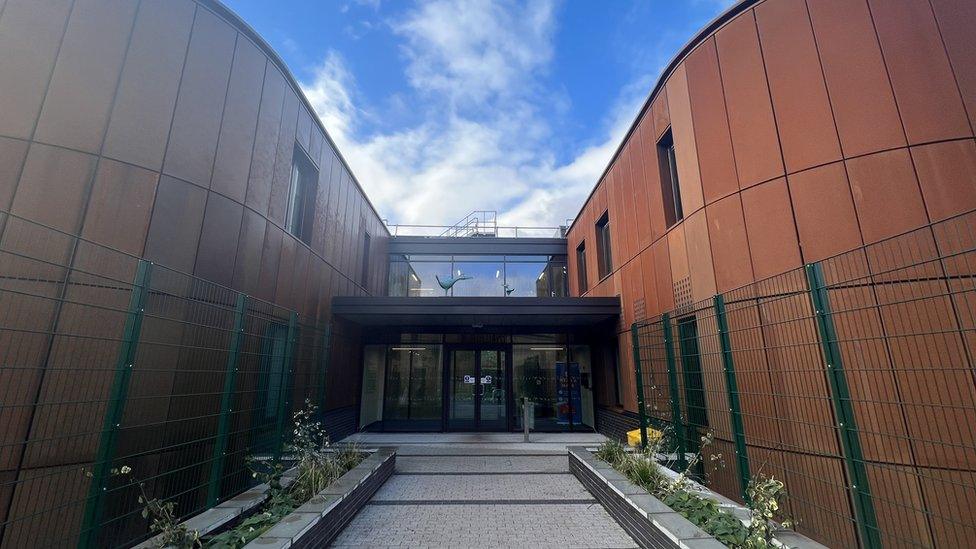
Sunflower House replaces the Dewi Jones Unit in Waterloo
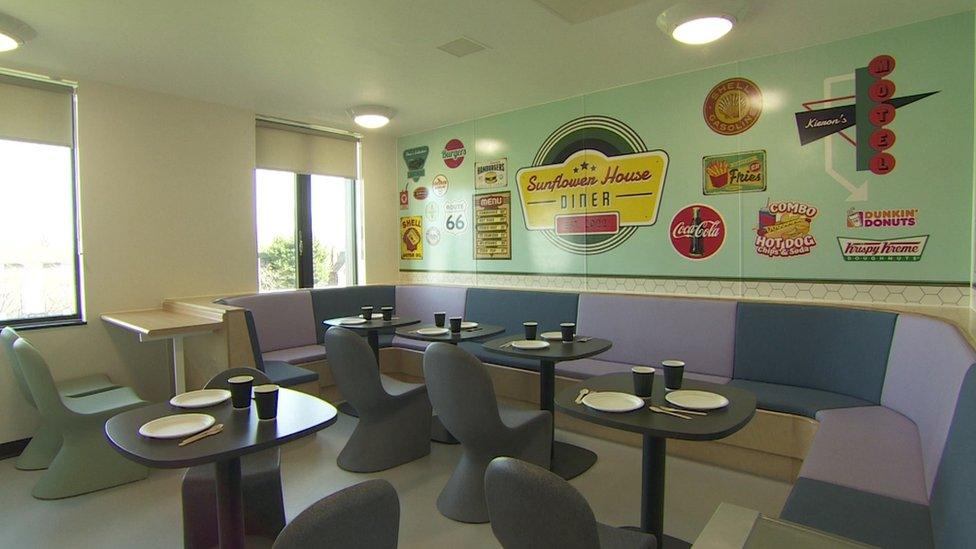
Sunflower House is located within the Catkin building, which opened in October 2022
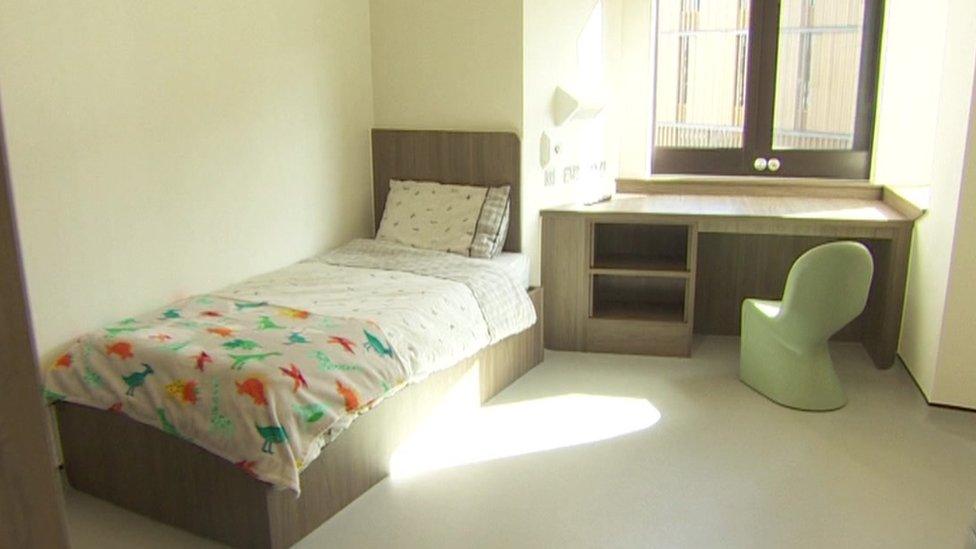
There are 12 bedrooms and a family bedroom on the unit
"It absolutely feels like home from home and that's the bit that makes it magical," said Alder Hey's director of community and mental health services Lisa Cooper.
Those homely touches have been paid for by the hospital's charity.
Fiona Ashcroft, chief executive of Alder Hey Children's Charity, added: "Those little extras make all the difference.
"It's often what people remember about their experience at Alder Hey."
Facilities include a therapy garden, a calming sensory room, a de-stimulation room, a safe kitchen environment to learn cooking and other life skills.

An "immersive room" features large screens which can help patients prepare for when they leave the unit
"We may have a patient that is anxious about getting back into the community," said Ben Smith, a modern matron at Sunflower House.
"They might have spent a long time with us on the ward here and we might want to get them out into the local shops, into the local area."
Large screens allow mental health professionals to simulate scenes from everyday life outside the unit for patients.
Demonstrating the technology, Ben said: "So, here we can bring them down Church Street in Liverpool.
"We've got the sounds and the sights that they'll see and we can prepare them for that."
Sunflower House is situated next to the mental health outpatients clinic and opposite Alder Hey's mental health research facility.
"Being able to bring the experts together in one place to support children and young people is what this is all about," said Alder Hey chief executive Louise Shepherd.
"Ideally, we would never want to see your child deteriorate to such an extent that they need these facilities.
"However, if they do, then we are here for them."
Lily and Nicola's names have been changed for this article
You can see more about this story on BBC North West Tonight at 18:30 BST and subsequently on the BBC iPlayer.

Why not follow BBC North West on Facebook, external, Twitter, external and Instagram, external? You can also send story ideas to northwest.newsonline@bbc.co.uk
- Published9 December 2021

- Published29 September 2021
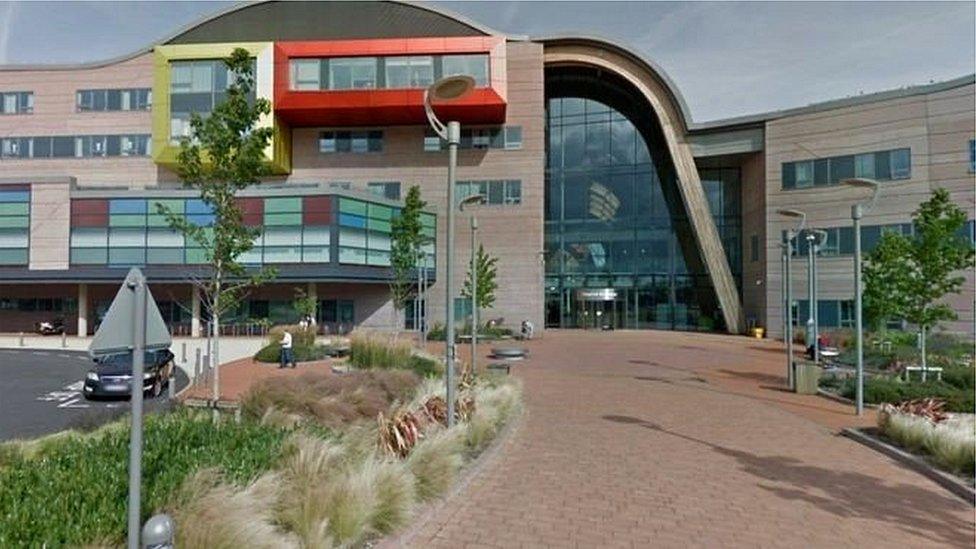
- Published14 May 2021
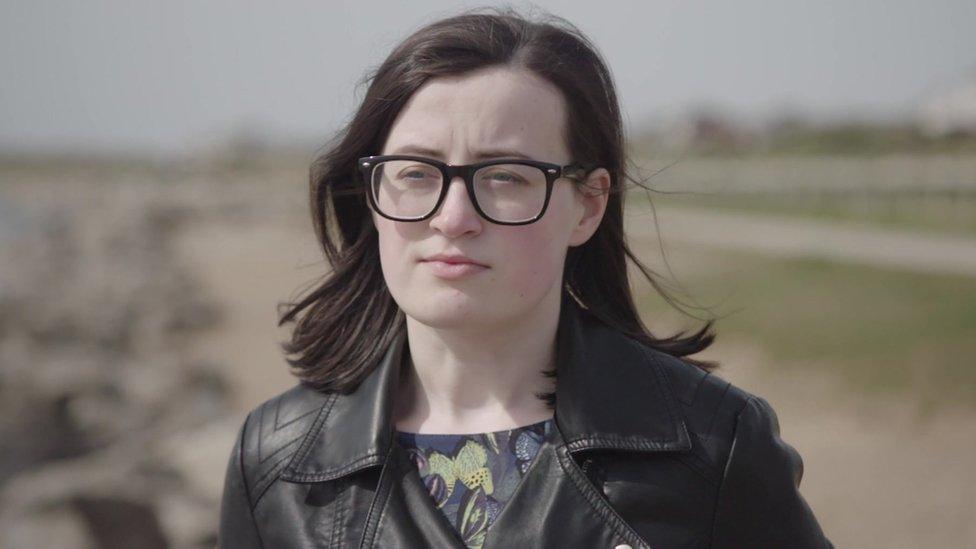
- Published11 May 2021
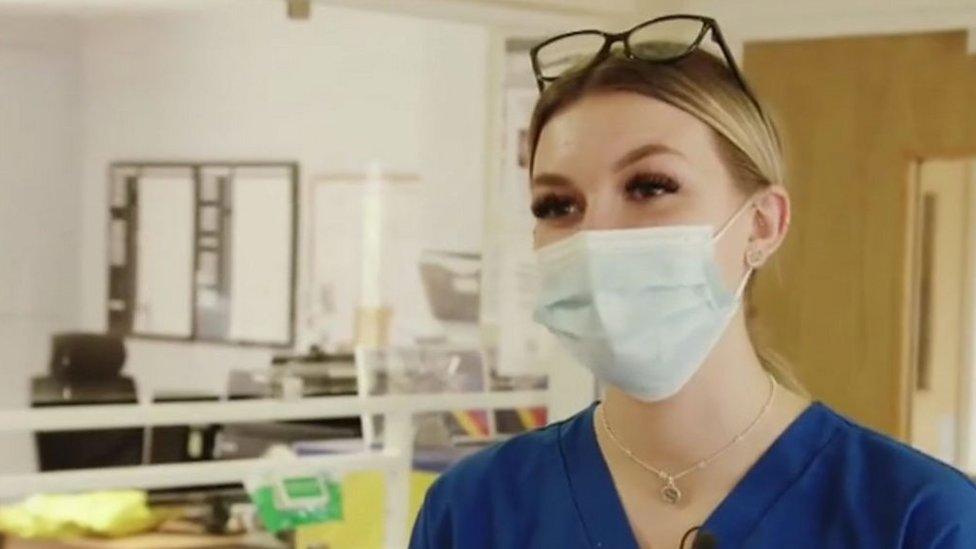
- Published10 May 2021
